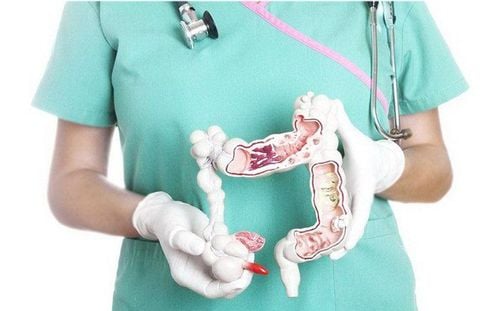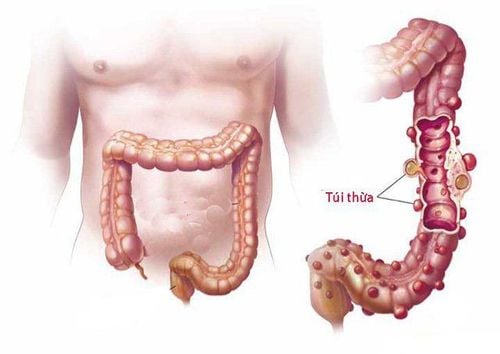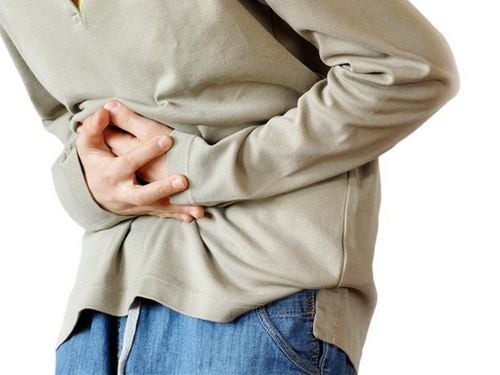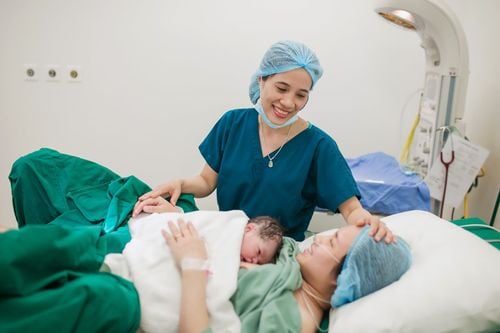This is an automatically translated article.
The article is professionally consulted by Master, Doctor Vu Van Quan - Gastroenterologist - Department of General Surgery & Anesthesiology - Vinmec Hai Phong International General HospitalAppendicitis occurs when your appendix becomes inflamed with an acute or chronic condition. In the United States, appendicitis is the most common cause of abdominal pain and surgery in 5% of people. If the appendix is not operated on, it can rupture, allowing bacteria to enter the abdomen and sometimes cause death.
1. What is appendicitis?
The appendix is a small, tubular pouch attached to the large intestine. In terms of location, the appendix is located on the lower right side of the abdomen. The exact purpose of the appendix is currently unknown. However, many people believe that the appendix can help us recover from diarrhea, inflammation and infection of the small intestine and large intestine. These functions sound very important, however, in fact, our body still functions normally without the appendix.
When the appendix becomes inflamed and swollen, bacteria can quickly multiply inside the appendix and lead to pus formation. This accumulation of bacteria and pus leads to pain around the navel, which radiates to the lower right part of the abdomen. Walking or coughing can make the pain worse. In addition, the patient may also have additional symptoms such as nausea, vomiting, and diarrhea.
When detecting the above signs, the patient should go to a medical facility immediately to prevent complications of appendicitis. If left untreated, the appendix can burst, releasing bacteria and other harmful substances into the abdominal cavity. As a result, patients can be life-threatening and have a longer hospital stay.
Appendectomy is the most common treatment for appendicitis. Patients need to have their appendix removed immediately before the appendix can rupture. After surgery, most patients recover quickly and without complications.
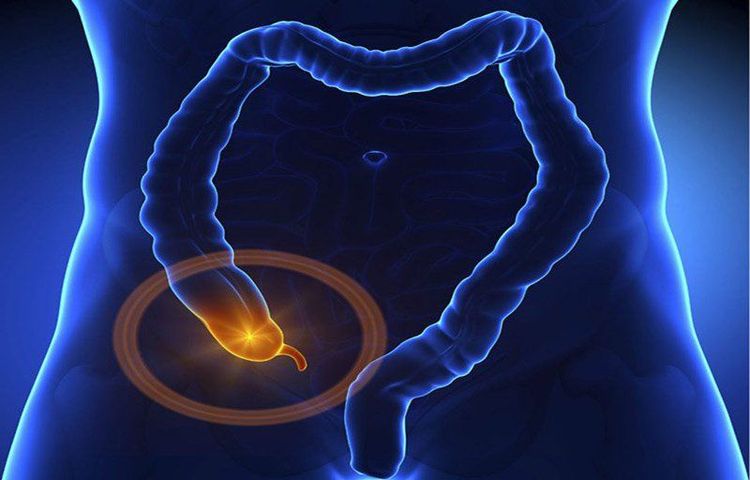
2. Risk of infection after appendectomy
All types of surgery carry certain levels of risk. One of the most common complications after an appendectomy is infection of the appendix incision. About 20% of people with a ruptured appendix will develop an abscess in the abdominal cavity about two weeks after surgery. These abscesses will need to be surgically drained.In the case of an inflamed appendix, it can rupture, spilling feces and bacteria into the abdominal cavity. If bacteria invade the abdomen, it can cause the lining of the abdominal cavity to become infected and inflamed, also known as peritonitis, which is very serious and even fatal.
In addition, a bacterial infection can also affect other organs in the abdomen. For example, bacteria from a ruptured abscess or appendix can enter the bladder or colon. The bacteria can even travel through the bloodstream to other parts of the body. To prevent and manage these complications, your doctor may prescribe antibiotics, surgery, or other treatments.
In addition, the patient may experience the following complications:
Intestinal obstruction: An estimated 3% of patients experience this complication after an appendectomy, an intestinal obstruction that prevents stool, gas, and fluid from passing through the intestines and This can lead to serious complications that may require a repeat surgery. Premature labor: Appendectomy during pregnancy can lead to premature labor in about 8 to 10% of cases. This risk is usually higher if the woman has a ruptured appendix. The rate of pregnancy loss due to this surgery is about 2%. Wound infection: This complication occurs in about 1.9% of patients undergoing laparoscopic surgery and 4.3% of patients having open surgery to remove the appendix. Less than 1% of appendectomy patients experience the following complications:
Blood clots Heart complications, such as heart attack Death Pneumonia Urinary tract infection (UTI) Although very rare symptoms after appendectomy, however, if you are concerned about the symptoms of these complications, contact your doctor or medical staff immediately.
3. Post-operative care to avoid infectious complications
After surgery, the recovery time will be different for each patient, depending on the severity of the infection and whether the appendix has ruptured.
According to the American College of Surgeons, if the appendix does not rupture, people can usually go home after 1 or 2 days of treatment in the hospital. If the patient has a ruptured appendix, the hospital stay will be longer because they will be treated with high doses of antibiotics and are regularly monitored for signs of complications.
After going home, the sick person should avoid driving, drinking, and operating machinery. However, before leaving, the doctor will advise the patient about limited activities and expected recovery time. The period of activity restriction usually lasts up to about 14 days after surgery.
Most children can return to school within 1 week of surgery if the appendix is not ruptured and within 2 weeks if the appendix is ruptured.
When you wake up from surgery, you will feel groggy and have trouble thinking clearly. If you experience discomfort, nausea, or pain, you should notify your healthcare provider for help.
Before going home, the doctor will usually give the patient some tips to improve recovery and reduce the risk of infection such as:
Do not lift anything heavier than 4.5kg for 3 to 5 days after laparoscopic surgery or 10 to 14 days after open surgery. Wash your hands thoroughly with warm water and soap before touching areas near the incision site. Follow your doctor's instructions for bathing. Most surgeons will advise patients not to shower for at least the second day after surgery. Check the dressing for signs of infection such as thick discharge, an unpleasant odor, or increased redness and pain at the incision site. Do not wear tight clothing as clothing can rub against the incision and cause discomfort. Use pain relievers as needed. Pain relievers can cause constipation, so your doctor may prescribe a stool softener and recommend that you increase your fluid intake to reduce the likelihood of a bowel obstruction. Hug a pillow to your abdomen before coughing or moving to minimize pressure on the incision sites.

If the following signs are present, the patient should notify the doctor immediately:
Fever higher than 38.3 degrees Celsius Unable to defecate or defecate for 3 days Appendiceal incision pain persists or worsens more pain Severe abdominal pain Vomiting In addition, if there are other unusual signs, the patient should also notify the doctor immediately.
Vinmec International General Hospital with a system of modern facilities, medical equipment and a team of experts and doctors with many years of experience in the examination and treatment of digestive diseases, patients can completely peace of mind for examination and treatment at the Hospital.
Please dial HOTLINE for more information or register for an appointment HERE. Download MyVinmec app to make appointments faster and to manage your bookings easily.
References: hopkinsmedicine.org, healthline.com





